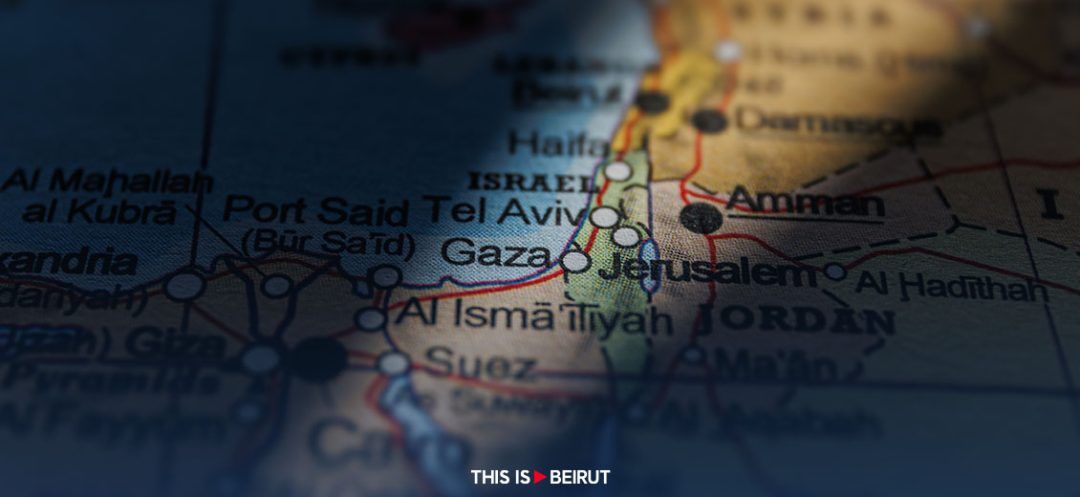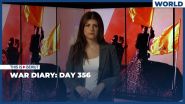- Home
- War in the Middle East
- The Grinding Conflicts

The new Cold War seems to be neither cold nor short-lasting. It has turned out to be a watershed in the life of the international community, revealing emerging fractures, rising actors and the nihilistic bent of ongoing conflicts. The harshness of the war in Ukraine, its web of lies and mystified representation have unveiled the new face of the old Bolshevik power politics. One wonders why this conflict ended up killing all attempts at diplomatic mediation since 2014 and discrediting an already debunked UN governance. But the answer is far from being mysterious and is actually quite straightforward: the Russian autocrat and his Chinese handler are attempting to rewrite the post-Cold War narrative and redraw the geopolitical fault lines of a disintegrating world order.
The fallacies recycled by Vladimir Putin since the attack of Georgia (2008), Crimea and the Donbass (2014), the sellout of Artsakh (2023) and the double dealing in regard to Eastern Armenia are quite indicative of the underlying agenda: recapturing Russian colonies, remapping an imaginary Russian fiefdom and reweaving an imperial narrative, at a time when Russia has receded to the status of a "third world country with nuclear arms," a mid-sized, oil-based rent-economy run by a mafia-czar and his vassal oligarchs (capo di tutti capi), with declining demographics and controversial geopolitics along the Chinese and Central Asian marshes.
The big fallacy pinpointing NATO’s hypothetical strategic inroads in the Russian perimeter reflects the objectives of a neo-imperial Russian drive aiming at the unraveling of the European Union and the Transatlantic alliance. Putin’s war of attrition should be ultimately contained and Russia brought back to the negotiating table to finalize previous agreements, put an end to the criminal bloodshed, seal off NATO’s borders and reengage the European Commonwealth and the Transatlantic partnership. The ravings of Eurasian despotism are in outright collision with the aspirations of a more liberal and European Russia growing out of the panopticon of Aleksander Dugin nationalistic paranoia, fossilized Orthodoxy, anti-modernism and residual Bolshevism.
The renewed Israeli-Palestinian conflict has been weaponized by the destabilization strategy conducted by the Iranian regime, aiming to create a state of permanent civil and regional wars throughout the Middle East. The pogrom of October 7, 2023 unleashed a dynamic of open-ended regional conflicts, consolidated the endemic instability within the Iranian arc of conflicts, sealed off control of the annexed provinces (Houthi Yemen, Iraq, Syria, Lebanon, Gaza and the West Bank), promoted the militarization of the Iranian nuclear power and allegedly contributed to the refashioning of the purported new world order. The outright spiking of US-Saudi negotiations after the massacres of October 7, the creation of a regime of proxy and low intensity conflicts, free-floating terrorism and organized criminality are located on the same strategic continuum and should be dealt with on this very basis.
The latest terrorist attack on the US base in Jordan and the string of Houthi attacks on the international maritime pathways are acts of war that should be reciprocated without soul-searching: Hamas military infrastructure should be destroyed, negotiations between Israel and the Palestinian Authority should restart, Hezbollah’s subversive wanderings throughout the Iraqi-Syrian and Lebanese interstices should end, and Houthi seafare terrorism should be annihilated. Otherwise, we should stop fooling ourselves with shuttle diplomacy. The Iranian regime bloody marauding should end on both ends, within Iran and in the Middle East, as diplomacy works after sturdy containment, and not before. Unfortunately, there are no happy news to report when barbarians are at the gates.
Read more



Comments